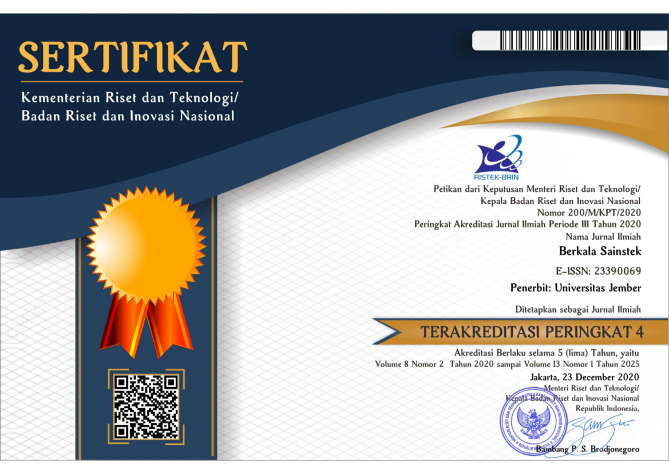Bioethanol Production by Fermentation of Rice Husk and Golden Banana Peel Delignified Using EM4
DOI:
https://doi.org/10.19184/bst.v12i1.43054Keywords:
Bioethanol, EM4, Baker's yeast, Delignified gold banana peel and rice huksAbstract
The increasing number of vehicles can increase the need for fossil fuels and polution so that a safe alternative is needed. one of the environmentally friendly alternatives is bioethanol. Banana peels and rice husks contain carbohydrates that are good enough to be utilized as a microbial fermentation substrate to be converted into bioethanol. The purpose of this study is to determine the optimal level of bioethanol produced in rice husk and golden banana peel that has been delignified with EM4. The research method used is experimental research with research stages starting from the manufacture of rice husk powder and golden banana peel, delignification using EM4, measurement of lignin content, making rice husk slurry and golden banana peel delignification results, fermentation using baker's yeast with a concentration of 1%, measurement of bioethanol content, data collection and data processing using One Way Anova to determine differences in each sample. The results obtained bioethanol levels increased until the last day of fermentation, which is 9 days with levels of 46.08%. It can be concluded that the use of golden banana peel and rice husk that has been delignified with EM4 is able to produce the most optimal bioethanol.








